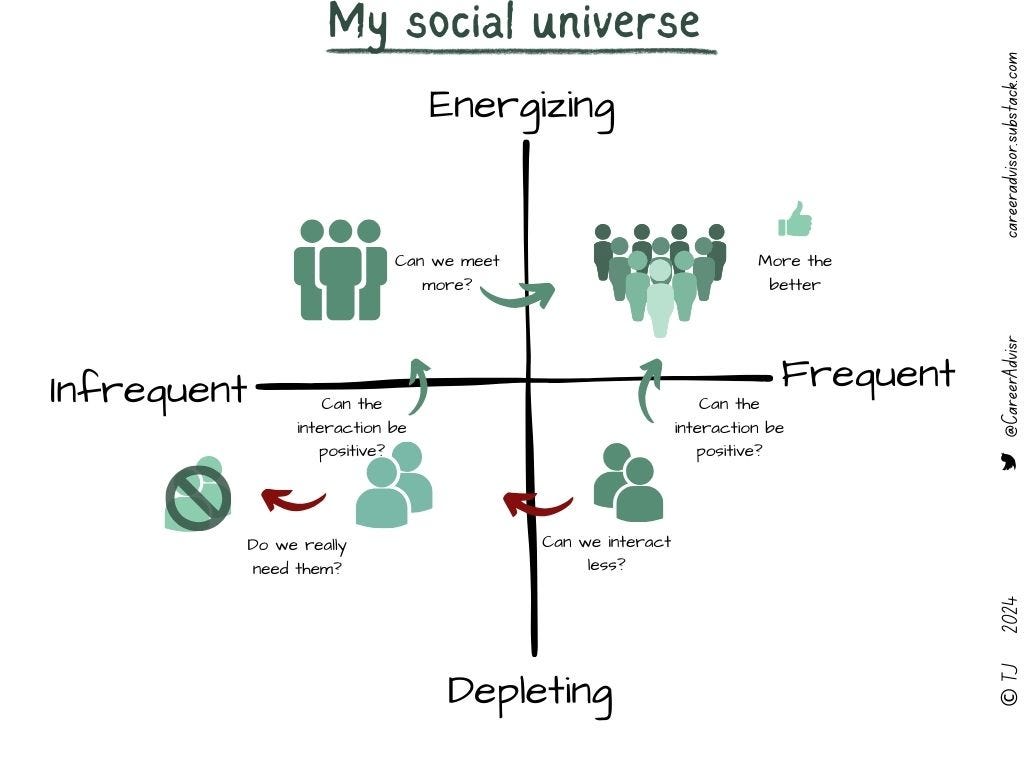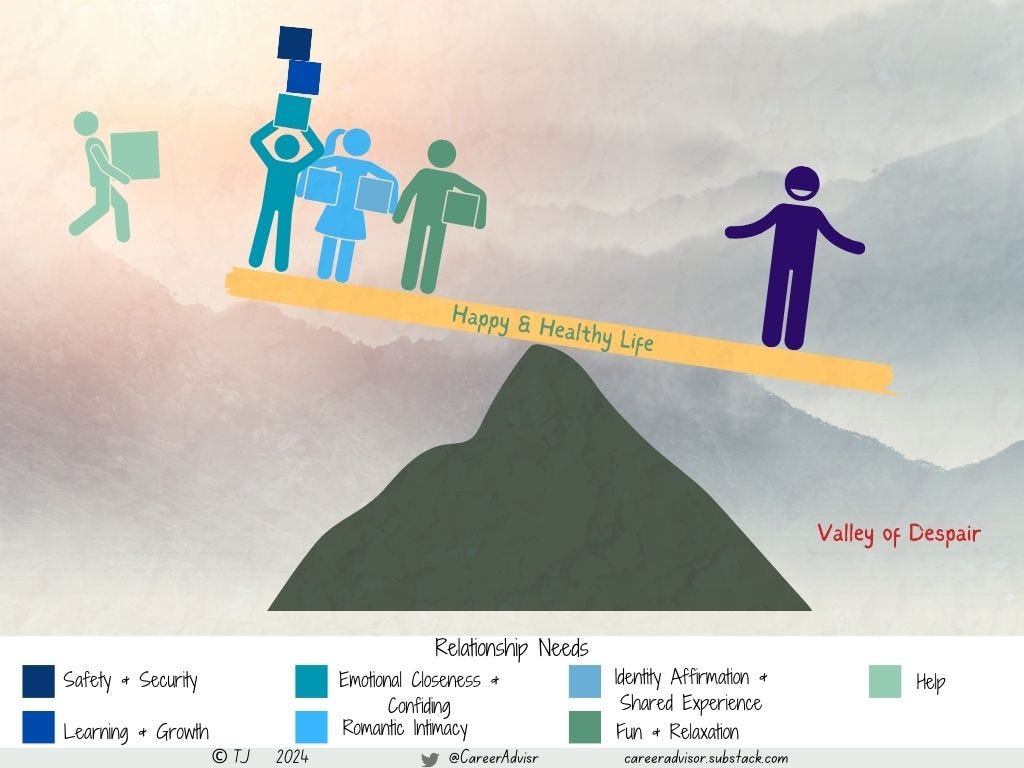Harvard Study of Adult Development is the longest ongoing study to identify the drivers of a happy life. Spoiler alert, it is healthy relationships. We took a look at the study and takeaways in an earlier post. The program directors wrote a book, The Good Life1. The book gives us a framework to evaluate the health of our relationships, aka our Social Fitness.
People(Who?)
The first step in the evaluation is identifying the people in your life. Write down a list of 10-20 people. You could think of them as falling into two categories
Inner Circle: Closest friends, Parents, siblings, and so on
Outer Circle: Work colleagues, casual acquaintances, and so on
Relationship Dynamics(What?)
Now take a look at the kind of relationships that you have with them.
What is the character of these relationships?
You can use the following quadrant-based approach to visualize your Social Universe
Frequency: How often do you interact with this person? (X-axis)
Impact: Does the interaction leave you feeling energized or depleted? (Y-axis)
Consider how you'd like to adjust your current universe. Who do you want to meet more? Do you want to change the type of interaction that you typically have with someone?2
Relationship Keystones(How?)
Every relationship is different and fulfills different needs. Now let us take a look at the different relationship needs and evaluate if we have them fulfilled - through one or more relationships.
Safety and Security: Who do you trust and rely on during emergencies or challenging times?
Learning and Growth: Who motivates and encourages you to reach your full potential?
Emotional Closeness and Confiding: Who do you feel comfortable confiding in and seeking advice from?
Identity Affirmation and Shared Experience: Who shares your history and strengthens your sense of self?
Romantic Intimacy: Are you satisfied with the level of intimacy in your romantic relationships?3
Help: Who do you turn to for expertise or practical assistance?
Fun and Relaxation: Who brings joy and laughter to your life?
Consider if there are unmet relationship needs. Do your relationships cover all the relationship needs?
Social fitness, here we come!
It is a good read, if you are looking for book recommendations.
Asking questions, especially uncomfortable ones, is my superpower! Only when writing though.
The authors point out that people today place an unrealistic burden on their spouses by expecting them to meet the majority of the relationship needs.





